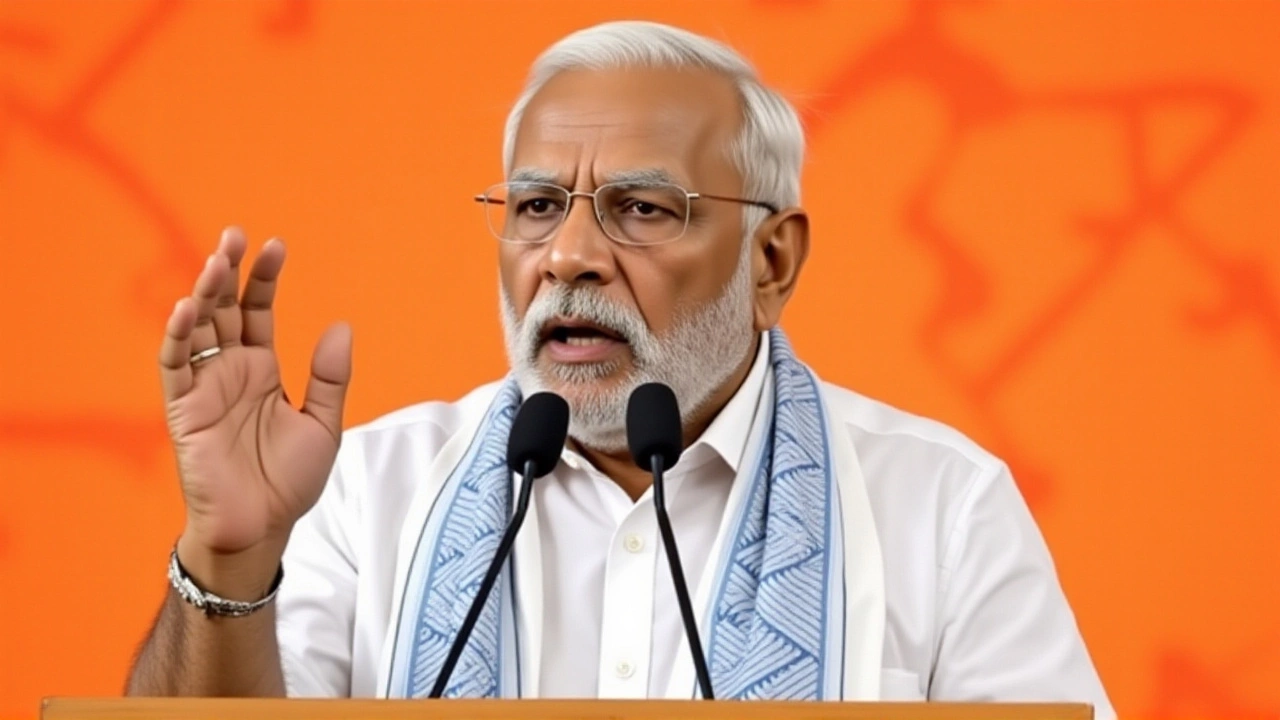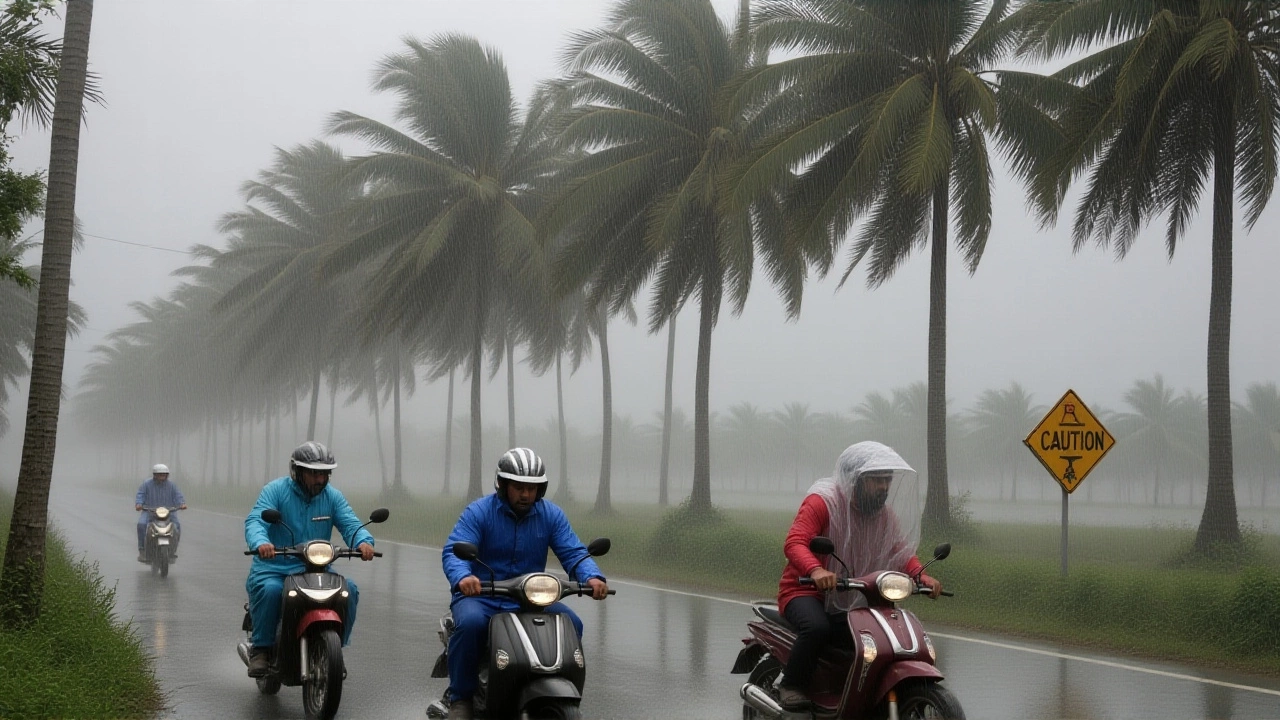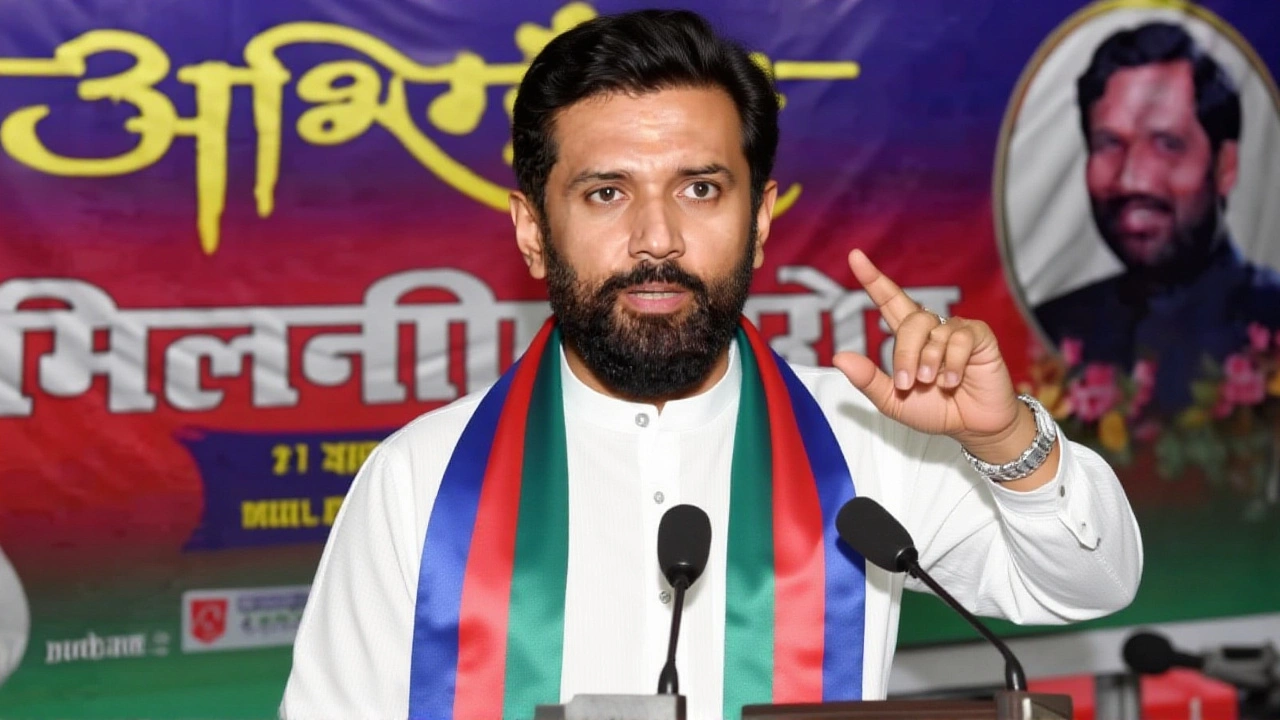When Chirag Paswan, Union minister and president of the Lok Janshakti Party (Ram Vilas), called for a probe into alleged attacks on Bihar migrant workers, it wasn’t just about one incident—it was about a pattern. The demand, made public after an NDTV report, came as tensions boiled over in Tamil Nadu, where a sweeping voter enumeration drive has left thousands of seasonal laborers confused, scared, and feeling erased. The timing is no coincidence. For migrant workers who move between states for construction, textiles, and agriculture, their right to vote, access welfare, or even be counted in official records has become a political battleground.
What’s Really Happening in Tamil Nadu?
On October 27, 2023, the Election Commission of India announced that Tamil Nadu would enter the second phase of its Special Intensive Revision (SIR) of electoral rolls—a process meant to clean up outdated or duplicate entries. But what began as administrative housekeeping has spiraled into a crisis of trust. In Chennai’s slums and Tiruppur’s factory quarters, residents say officials showed up asking for Aadhaar cards, then returned days later saying they weren’t needed. "They came last week and asked for Aadhaar. Now they say Aadhaar is not required. People don’t know what to believe," said civic volunteer N. Rajeswari in north Chennai.
The fear isn’t baseless. Migrant workers, many of whom live in rented rooms or temporary shelters, worry that if enumerators find their homes empty—because they’re working in another state—they’ll be marked as non-residents. "If they come when we are at sea, they will mark our house locked. Then they will say we don’t exist," warned Panchayat member S. Pandyan in Cuddalore. That’s not just bureaucratic error; it’s disenfranchisement by omission.
Political Backlash and the "Erasure" Accusation
On November 2–3, 2023, 45 political parties—including the Congress, CPI(M), VCK, MDMK, and IUML—gathered at the Tamil Nadu Secretariat in Chennai under portraits of Periyar and C.N. Annadurai. It was an unprecedented show of unity against what they called political engineering. Chief Minister M.K. Stalin didn’t mince words: "This is not revision, it’s erasure, it’s political engineering through paperwork."
That language resonates deeply. Memories of the National Register of Citizens (NRC) in Assam, where over 1.9 million people were left off the list in 2019, still haunt marginalized communities. Many fear the SIR process could be weaponized to dilute the voting power of migrant-heavy constituencies—especially those with high Dalit and Muslim populations, who form key voting blocs for opposition parties.

Chirag Paswan’s Political Calculus
So why is Chirag Paswan, a Bihar-based minister, stepping into this Tamil Nadu controversy? The answer lies in his party’s ambitions. In the 2020 Bihar assembly elections, LJP(RV) won 19 out of 29 seats under the NDA banner, securing two ministerial posts in Nitish Kumar’s government. Sanjay Kumar (Paswan) got the sugar cane portfolio; Sanjay Singh took PHED. But Paswan isn’t resting. He’s planning a Bihar Yatra to identify grassroots issues and reviving the Dalit Sena under Jamui MP Arun Bharti. His goal? To expand LJP(RV) into West Bengal, Punjab, and Uttar Pradesh—states with large migrant worker populations.
"We won 19 out of the 29 seats because of the people’s blessings and PM Narendra Modi’s support," Paswan said, laughing off accusations of ambition. "How greedy can Chirag be?" But his demand for a probe into migrant attacks isn’t just altruistic. It’s strategic. By aligning with migrant concerns, he’s positioning LJP(RV) as the voice of India’s most vulnerable laborers—those who are politically invisible but numerically powerful.
The Human Cost of Bureaucratic Confusion
The ripple effects are already visible. In Cuddalore, fisherfolk say they’re being asked to prove residency for ration cards, even though they’ve lived in the same coastal hamlet for decades. In Chennai’s Perambur industrial zone, a migrant from Bihar says his daughter was denied a school admission because her Aadhaar didn’t match the voter list. "We moved here in 2018. My wife works in a garment factory. We pay rent. We vote. But now they say we’re not here?" he asked, voice trembling.
Civic groups like the People’s Union for Civil Liberties have started distributing pamphlets in 12 languages to clarify the process. But trust is broken. Many workers now fear that being counted could lead to being targeted—whether by authorities, landlords, or even local gangs.

What Comes Next?
On November 28, 2023, LJP(RV) will celebrate its foundation day in Patna. Paswan plans to use the event to announce his next phase: a national campaign on migrant rights. He’s also reportedly in talks with labor unions in Punjab and West Bengal. Meanwhile, the Election Commission has yet to release a detailed methodology for the SIR process. No timeline for resolution has been given.
For now, the migrant workers are caught between two systems: one that wants to count them, and one that wants to forget them.
Frequently Asked Questions
Why are migrant workers being targeted in Tamil Nadu’s voter enumeration?
Migrant workers are vulnerable because they often lack permanent addresses, and enumerators may mark their homes as "unoccupied" if they’re away for work. This can lead to their names being removed from electoral rolls, which in turn affects access to welfare schemes tied to voter ID. In Tamil Nadu’s coastal and industrial zones, where labor mobility is high, this risks disenfranchising hundreds of thousands.
What’s the connection between Chirag Paswan’s demand and the Tamil Nadu controversy?
While the alleged attacks on Bihar workers haven’t been independently verified, Paswan’s call for a probe is politically timed. His party relies on Dalit and OBC voters—many of whom are migrant laborers. By linking the two issues, he’s building a national narrative around migrant rights, positioning LJP(RV) as a defender of the disenfranchised beyond Bihar.
How does voter enumeration impact access to government benefits?
In many states, ration cards, PDS subsidies, and housing schemes are linked to voter ID or Aadhaar. If a migrant’s name is dropped from the electoral roll due to enumeration errors, they may lose access to these benefits—even if they’ve lived and worked in the state for years. This creates a vicious cycle: no ID, no benefits, no proof of residence, no vote.
Has the Election Commission responded to the criticism?
As of now, the Election Commission has not released detailed guidelines on how enumerators should handle migrant populations or what documentation is acceptable. No public clarification has been made about the apparent contradictions in Aadhaar requirements. Critics say this silence fuels suspicion and undermines the credibility of the entire process.
What’s the historical precedent for voter roll controversies in India?
The 2019 NRC in Assam excluded nearly 1.9 million people, mostly Bengali-speaking Muslims, sparking national outrage. Similar fears resurfaced during the Citizenship Amendment Act protests. Tamil Nadu’s SIR doesn’t aim to remove citizenship, but the mechanics—lack of transparency, inconsistent documentation rules—mirror the same anxieties. For marginalized communities, the pattern feels familiar: paperwork used to erase people from the system.
What’s at stake for the 2024 general elections?
Tamil Nadu has over 60 million registered voters, and migrant workers make up an estimated 15–20% of that number. If large sections are disenfranchised, it could shift electoral outcomes in key constituencies like Tiruppur, Chennai North, and Coimbatore. With national parties eyeing Tamil Nadu as a battleground, the SIR process could become a decisive, if hidden, factor in the 2024 polls.


Write a comment